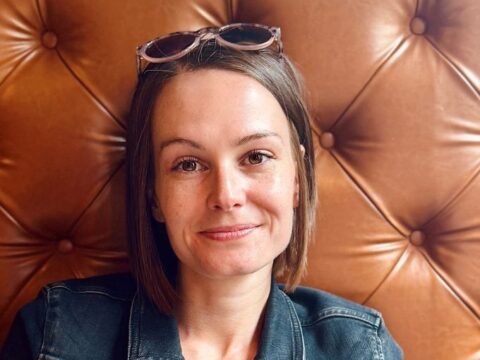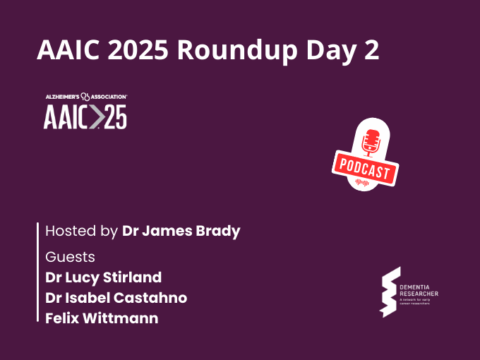
Dr Lucy Stirland
Name:
Dr Lucy Stirland
Job Title:
Academic old age psychiatrist
Place of work / study:
The University of Edinburgh and NHS Lothian
Area of research:
I study the co-existence of multiple conditions (sometimes called multimorbidity) and dementia
How is your work funded:
University of Edinburgh endowment; Global Brain Health Institute, Alzheimer’s Association and Alzheimer’s Society
Tell us a little about yourself:
I’m an academic old age psychiatrist, meaning I split my time between clinical work in the NHS and research. I trained as a consultant psychiatrist in Edinburgh, UK, where I now work with people with dementia in clinics, wards, and in a general hospital. Most people with dementia have other health problems and my research focuses on the complex interactions between their conditions. My PhD is in the epidemiology of multiple chronic conditions (also called multimorbidity) and my current work blends person-centred perspectives with data science.
Between 2022-2023, I spent a year at the Global Brain Health Institute (GBHI), University of California San Francisco, as an Atlantic Fellow for Equity in Brain Health. This transformed the way I think about dementia and gave me lifelong links with other fellows. I’m a founding co-chair of the Comorbidity and Multimorbidity Work Group within the International Society to Advance Alzheimer’s Research and Treatment (ISTAART) Design and Data Analytics Professional Interest Area. This is a worldwide group of dementia researchers from diverse backgrounds, all working on the interaction between other conditions and dementia.
Tell us a fun fact about yourself:
During my year in San Francisco, I swam 2 miles (3.2km) from Alcatraz Island back to the city
Why did you choose to work in dementia?
I initially chose to work in psychiatry because of the caring atmosphere, true teamwork and the fascinating people we meet. My passion in clinical work is for older people, who bring along their own life histories and often complex health backgrounds. In research, I’m interested in what might affect day-to-day outcomes in people who have dementia alongside other conditions. With this information, we can find out how to improve their lives, and those of the people who care for them.
What single piece of advice would you give to an early career researcher?
Find and keep good mentors and role models
What book are you reading right now? Would you recommend it?
Piranesi by Susanna Clarke. Yes, I recommend it for escapism as she vividly creates a different world from reality

 Print This Post
Print This Post




